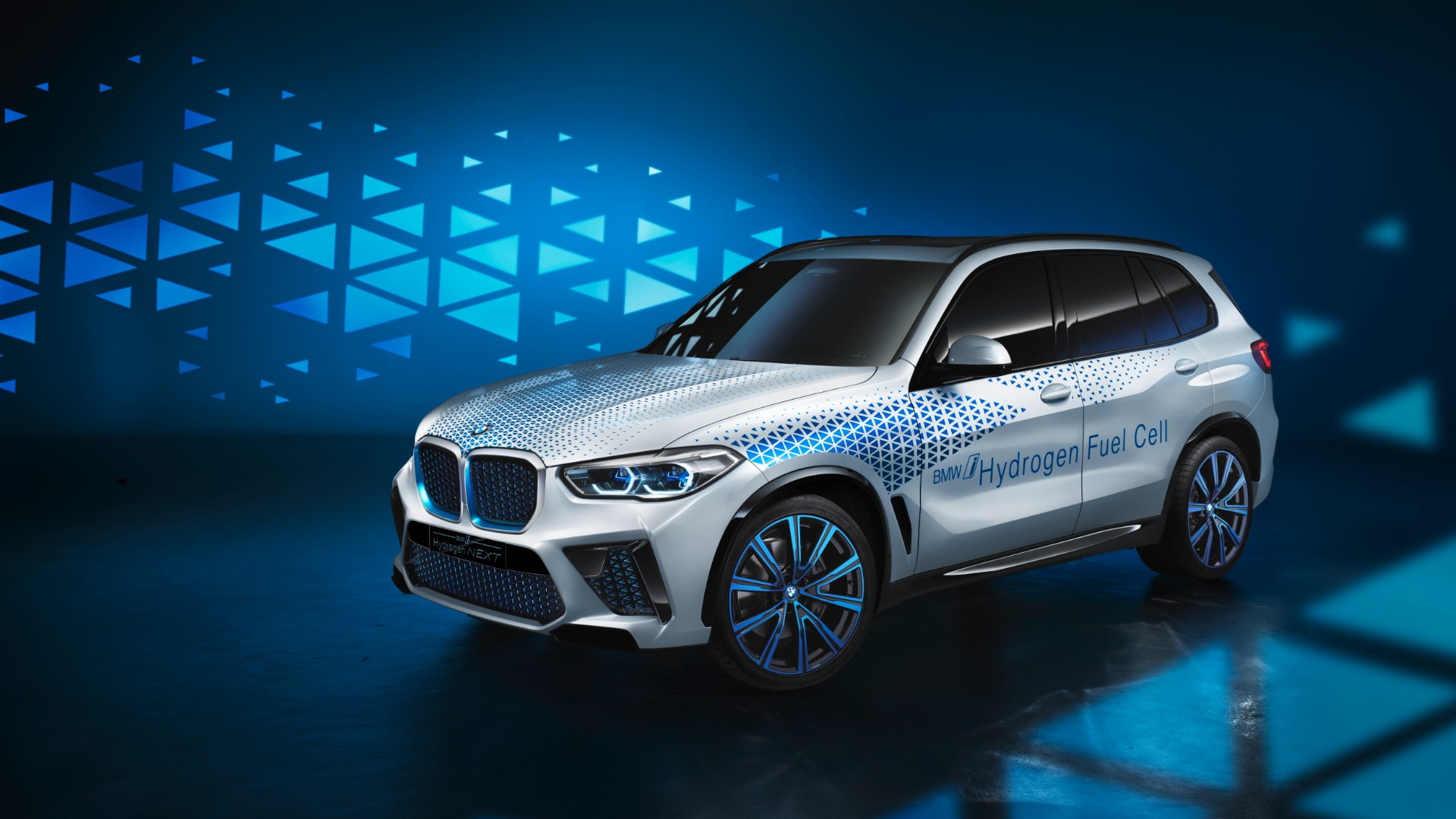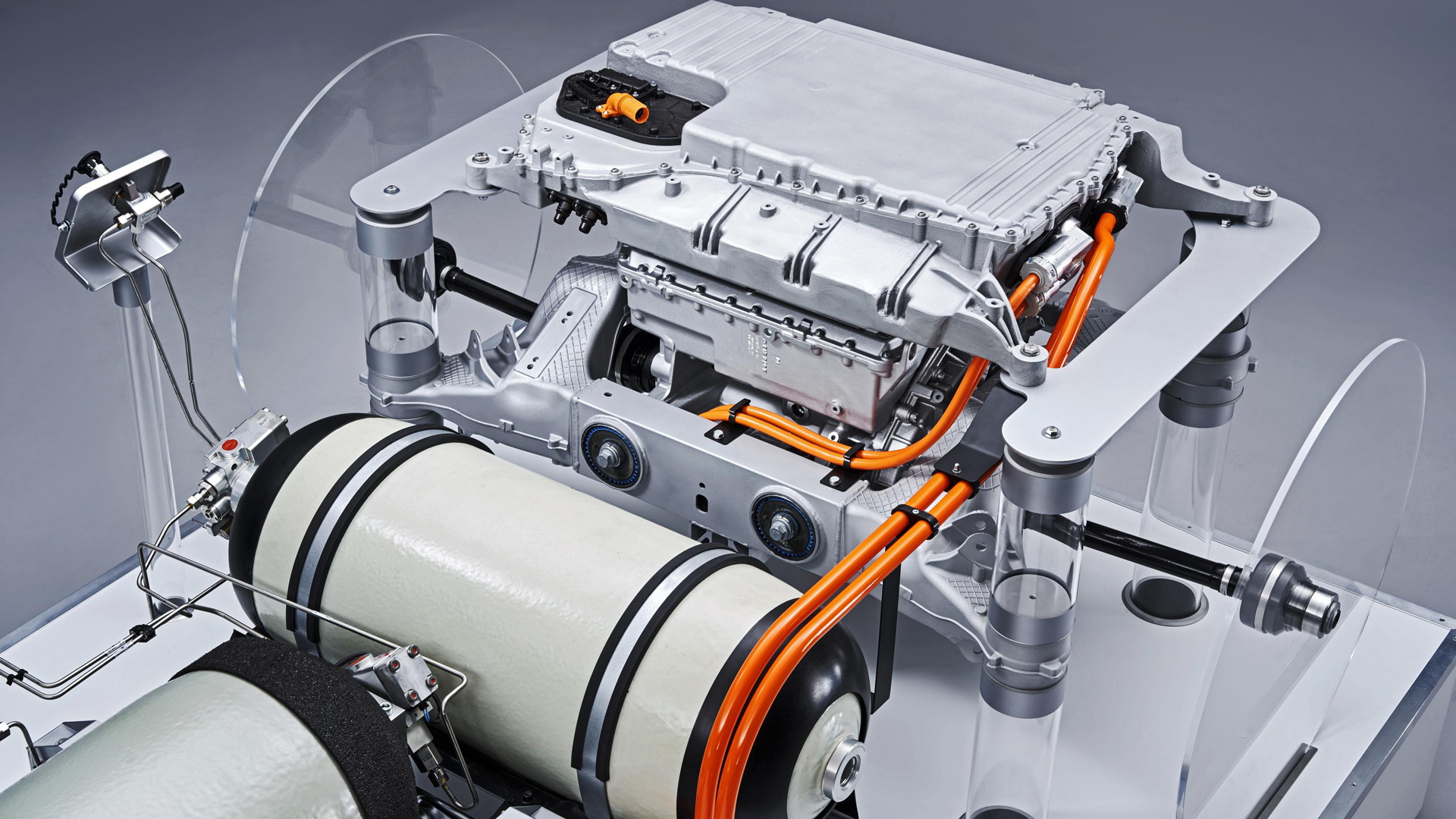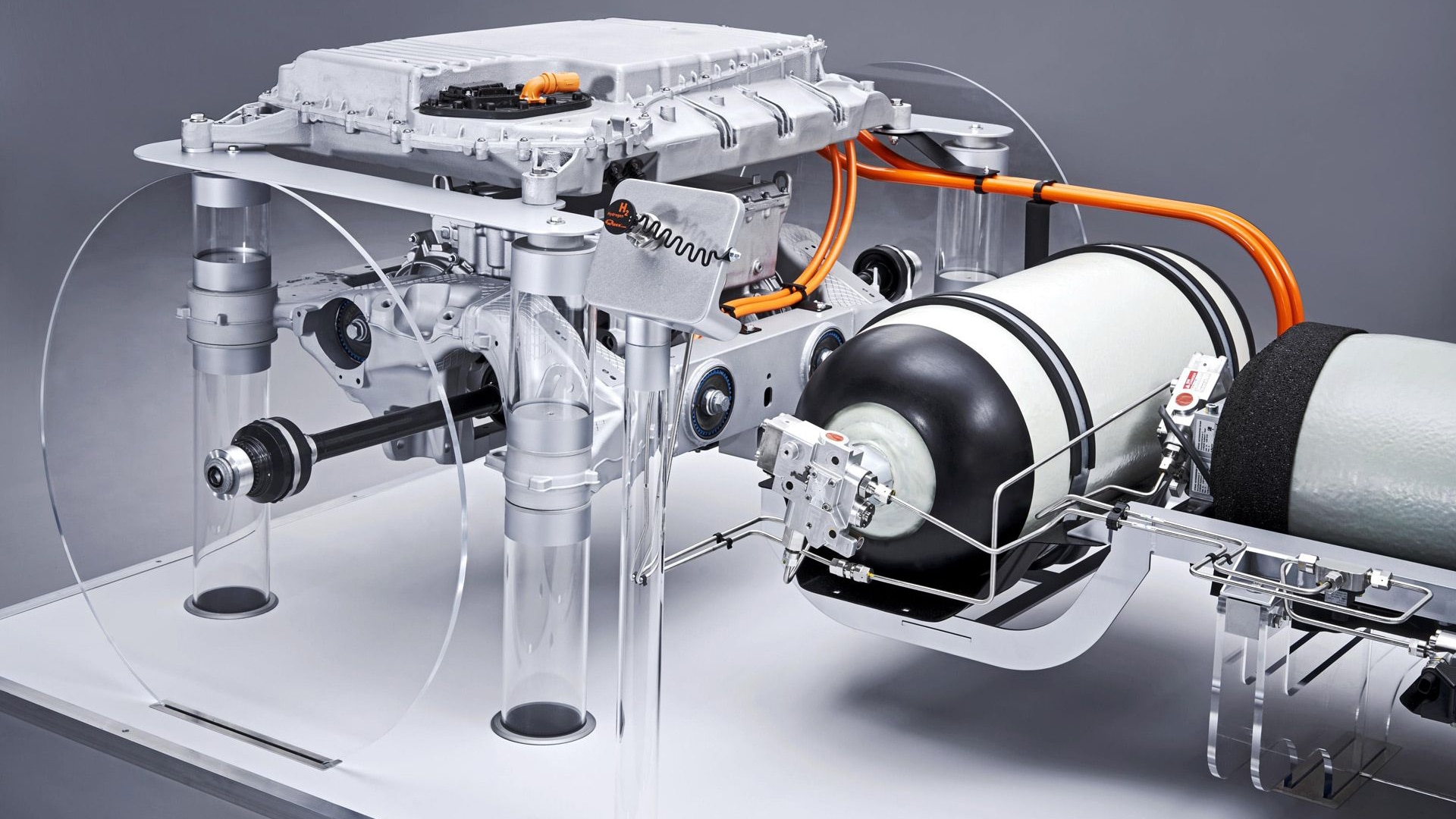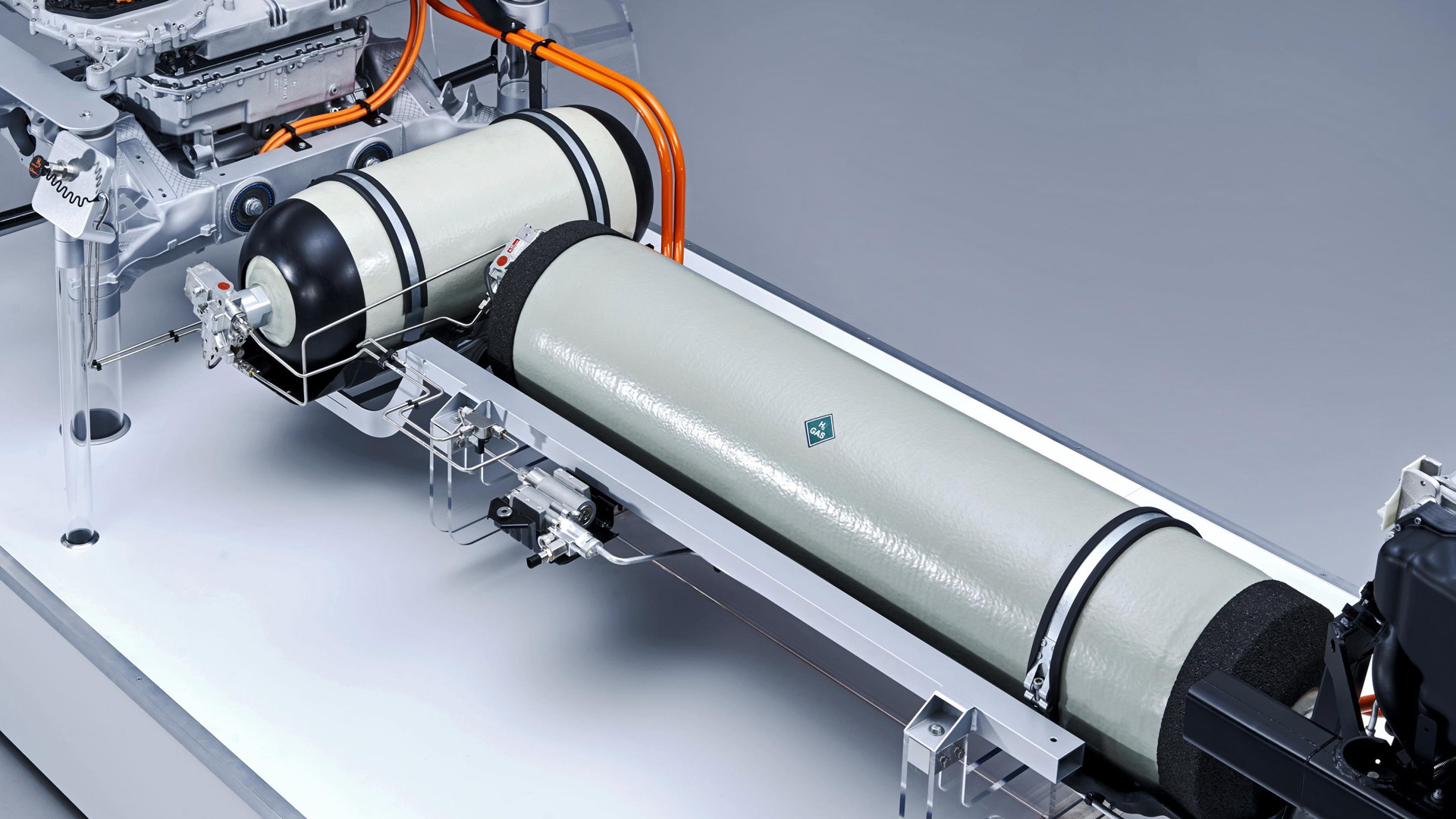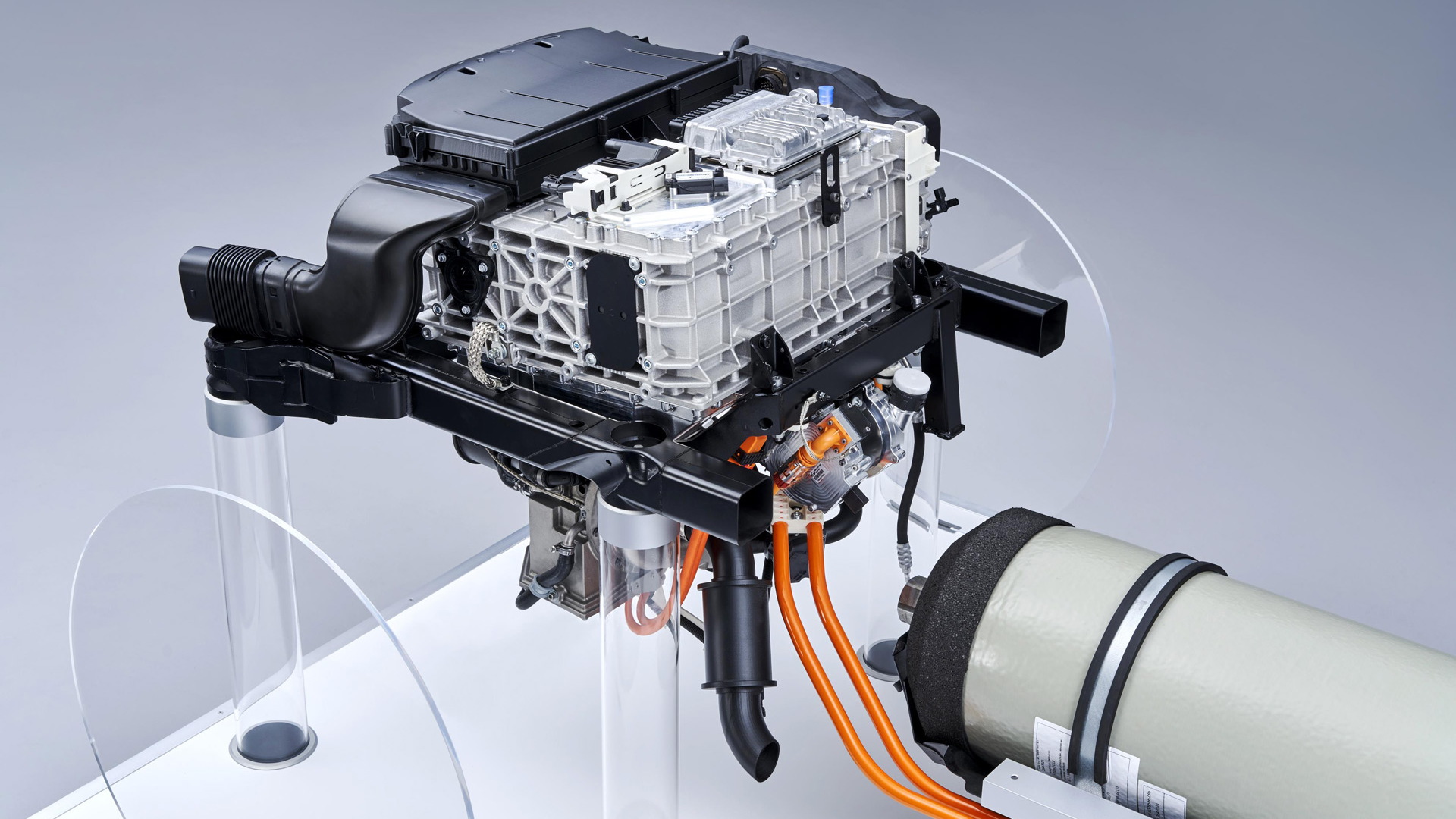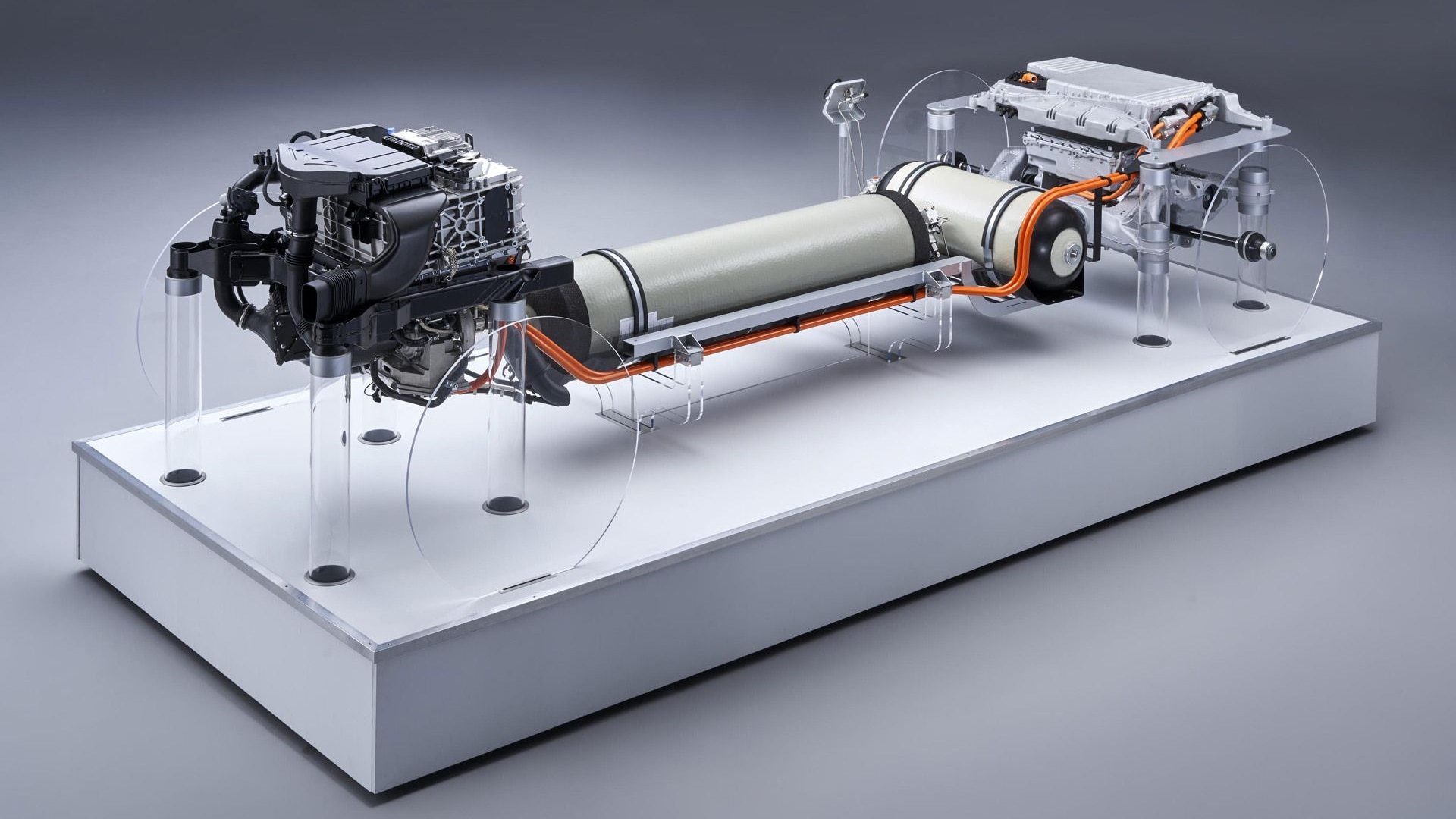BMW has released the first technical details of the i Hydrogen Next, a fuel-cell vehicle based on the X5 SUV.
First seen at the 2019 Frankfurt Motor Show, the vehicle's hydrogen fuel-cell drive system benefit from joint development between BMW and Toyota, while its fuel-cell stack itself will be wholly the product of Toyota. This is part of a longstanding technology partnership between the companies announced in 2013.
The same next-generation fuel-cell stack used in the i Hydrogen Next is expected to also be used in the next-generation Toyota Mirai sedan, but Toyota hasn't offered many details on it.
BMW, on the other hand said the stack will generate up to 125 kilowatts (170 horsepower). The current Toyota Mirai stack develops 114 kw (152 hp).
However, the i Hydrogen Next will also use a "peak power" battery pack to add more power when accelerating or overtaking, meaning it will likely have much higher output than the Mirai. BMW quoted a total system output of 275 kW (374 hp) using both the fuel-cell stack and battery pack.
The i Hydrogen Next has two cylindrical hydrogen tanks—one running down the middle of the vehicle, the other sitting width-wise under the rear-seat area. It wouldn't at all be surprising to see this arrangement used in the new Mirai, too.
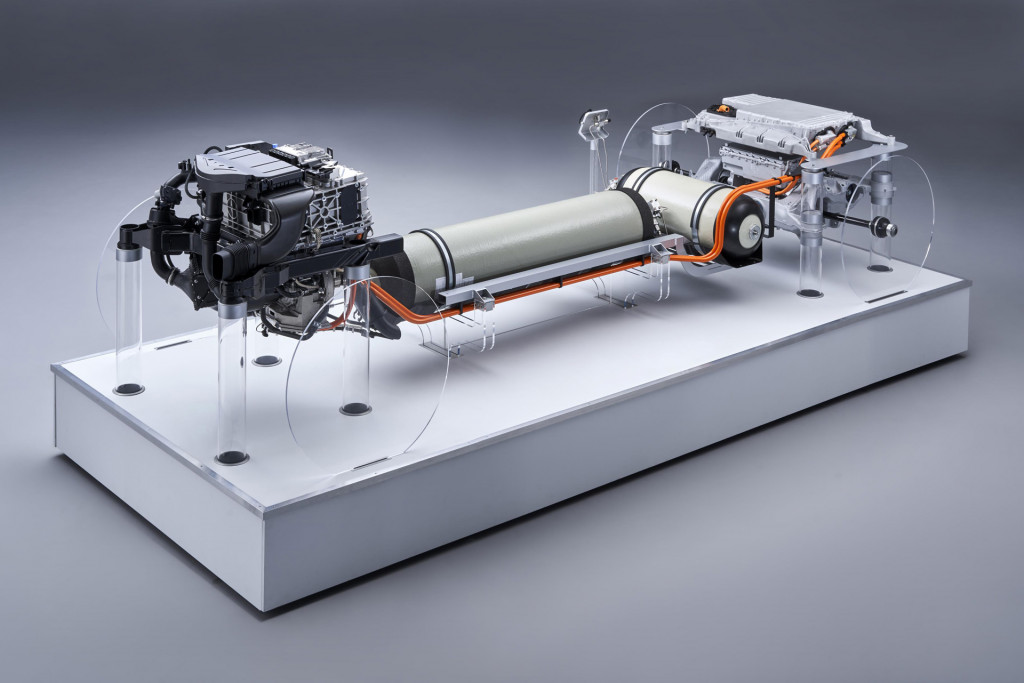
BMW hydrogen-electric powertrain entering production in 2022

BMW hydrogen-electric powertrain entering production in 2022
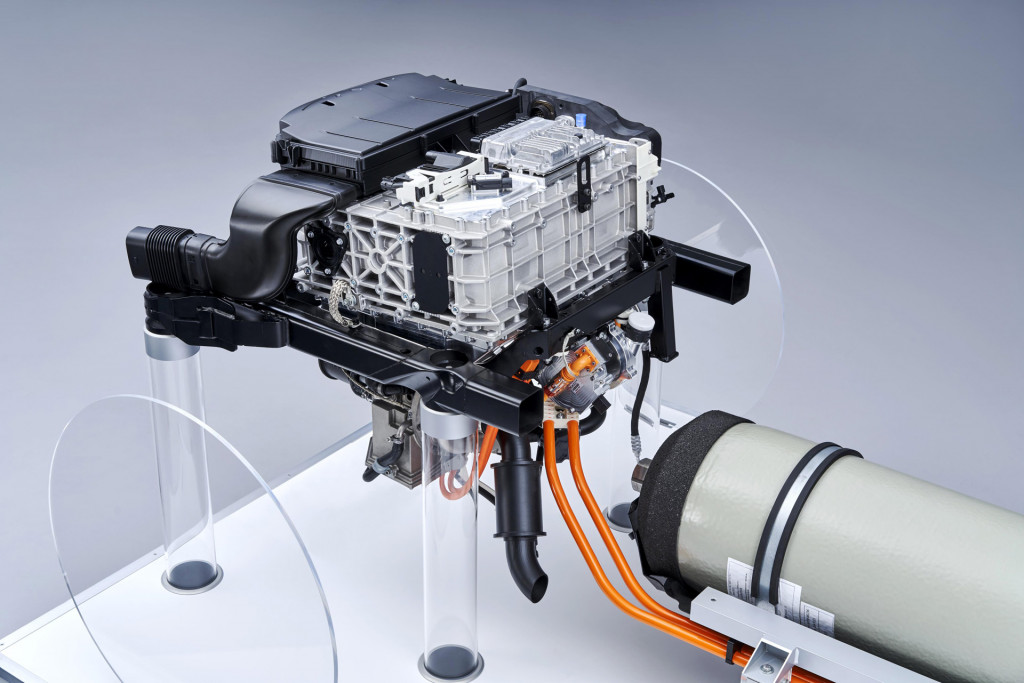
BMW hydrogen-electric powertrain entering production in 2022
BMW did not quote a range figure (the Toyota Mirai is aiming for 400 miles of range), but said refueling should take three to four minutes.
The automaker has a fair bit of experience with hydrogen, having previously built a version of its flagship 7-Series sedan, called the Hydrogen 7, with a hydrogen-powered V-12 internal combustion engine. BMW has also been testing a fleet of 5-Series Gran Turismo and i8 fuel-cell prototypes since 2015.
While the i Hydrogen Next shows BMW is still committed to fuel-cell powertrains, the automaker is taking a cautious approach. The SUV will go into limited production in 2022, but has not been confirmed for the United States. It would likely be limited to California, the only state with a sufficient number of hydrogen stations.
BMW said a higher-volume hydrogen model could arrive "at the earliest in the second half of this decade," noting that this depends on "global market conditions and requirements."
Lack of fueling infrastructure is still an issue for the automaker. Even if infrastructure is expanded, fuel cells will likely be used "primarily in applications that cannot be directly electrified, such as long-distance heavy duty transport," BMW research and development head Klaus Fröhlich said in a statement.
